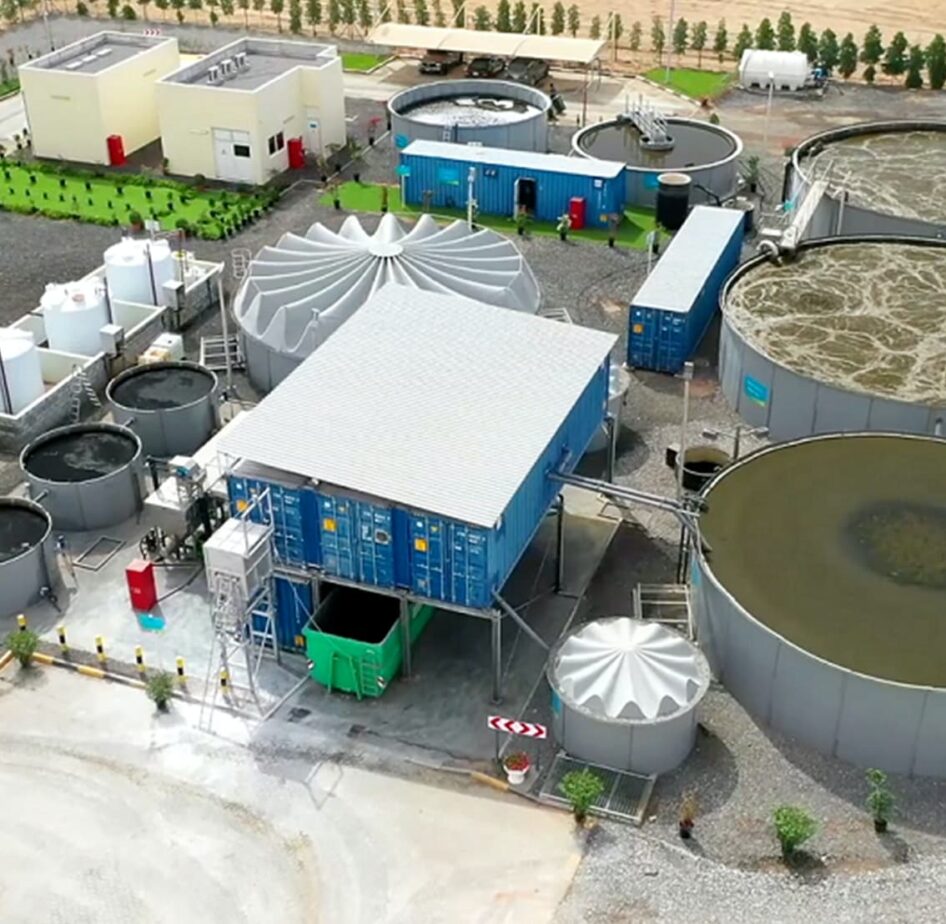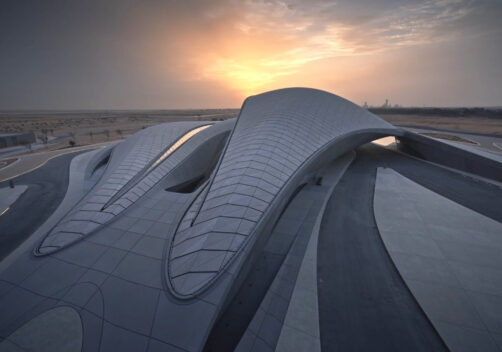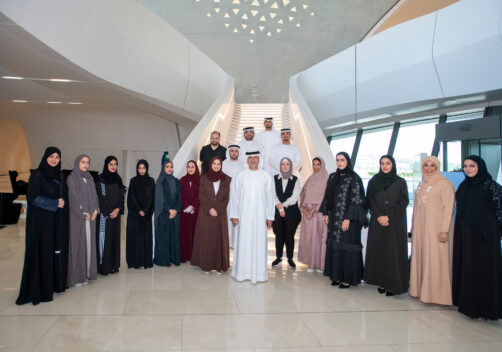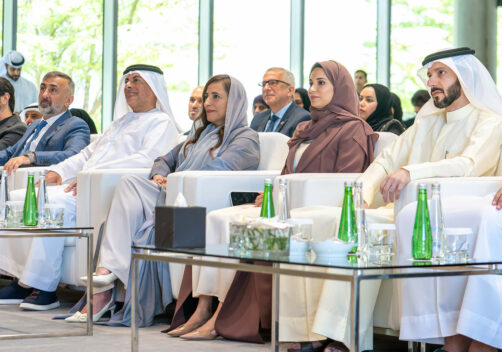Anew milestone in the company’s ongoing mission to pioneer solutions that help recover resources, divert waste from landfills, and reach a cleaner, more sustainable future
Sharjah, UAE, 18 March 2019: Bee’ah, the Middle East’s pioneer in sustainable quality of life, has launched a new high-tech, Industrial Waste Water Treatment Plant (IWWTP), in an event held today, at the company’s Waste Management Centre in Al Saj’ah. The launch was attended by H.E Salim Al Owais, Chairman of Bee’ah; H.E Thabit Salim Al Tarifi, Director General of Sharjah City Municipality; H.E Khaled Al Huraimel, Group CEO of Bee’ah, and other senior dignitaries. Signifying a new milestone in the country’s zero-waste journey, the new plant will be one of the UAE’s first dedicated full cycle treatment facilities for industrial and oil-contaminated wastewater.
H.E Salim Al Owais, Chairman of Bee’ah, commented, “We are proud to launch the new Industrial Waste Water Treatment Plant, which will serve as a crucial link in our overall strategy for total diversion, consolidating our leadership in sustainability; and in wastewater treatment solutions specifically. Industrial waste water levels are on the rise in the UAE, with the manufacturing sector being a primary contributor to the country’s GDP. It is therefore a priority to find a sustainable solution for the treatment of such waste water, as the economic production base expands. As one of the only dedicated industrial waste water treatment facilities in the region, the IWWTP presents a viable alternative to the disposal of industrial waste water, turning it into a resource which can further our ambitions in sustainable development.”
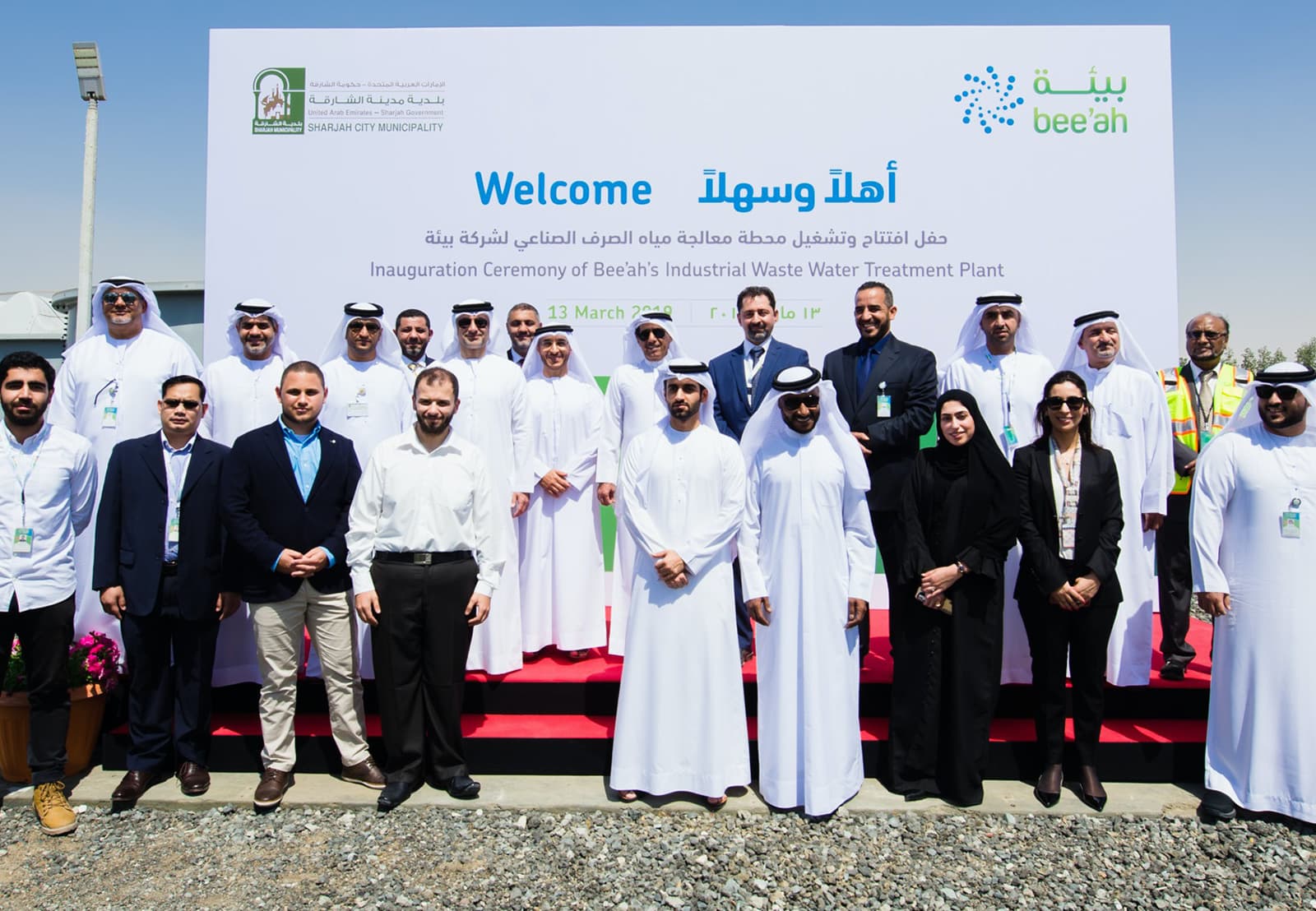
Processing a minimum of 350m3 of wastewater daily, the new facility was established to treat industrial contaminated water and produce clean water that can be returned to the water cycle, with minimum impact on the environment. The clean water produced from the plant has been certified to be safe for irrigation. Apart from producing clean water, the facility also prevents environmental contamination due to improper disposal of waste water; and supports the UAE’s ambitions in sustainability.
H.E Thabit Salim Al Tarifi, Director General of Sharjah City Municipality, said, “With a waste diversion rate of 75% set under the UAE Vision 2021, it is important for us to identify ways to reuse and recover resources as much as possible. Throughout the years, Bee’ah’s integrated waste management strategy has played a pivotal role in raising diversion rates in Sharjah. We are proud to support the launch of this new facility, which will raise these diversion rates even further. We had recently launched a new plant to treat sewage water for use in irrigation and washing cars. We believe these facilities will work in tandem to ensure the continued availability of water resources in Sharjah.”
Bee’ah’s Industrial Waste Water Treatment Plant uses the most advanced processes; and operates on an intricate five-tiered-system. After the liquid waste is collected in the reception area, it passes through a physical treatment stage to separate sand and remove floating fats. Then the water is pumped to a chemical treatment stage to adjust the pH and remove heavy metals respectively. Then, the biological treatment stage involves a removal of organic pollutants and a breakdown of ammonia. Lastly, the water goes through a multi-filtration stage, which includes UV filtration, to remove suspended matter and most forms of microbiological contamination.
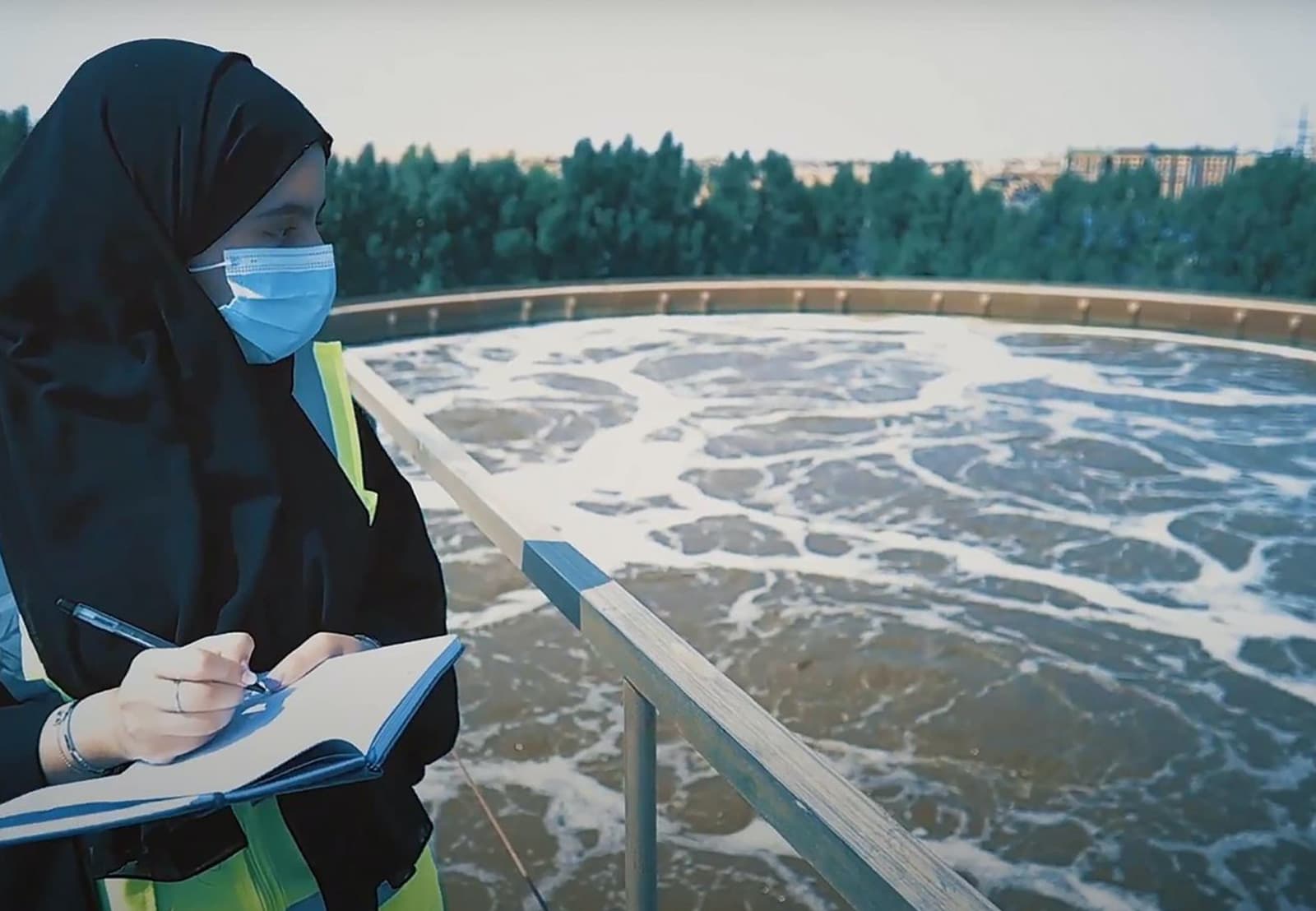
The new facility joins a range of other advanced recycling facilities housed at Bee’ah’s Waste Management Centre; which combined, process around 3 million tonnes of waste every year, and have helped Sharjah to achieve 76% waste diversion, the highest in the Middle East. The Centre is also the site for the UAE’s first waste-to-energy plant, which Bee’ah is building in partnership with Masdar. Processing 300,000 tonnes of waste per year, to generate up to 30 MW of energy, this facility will lead Bee’ah’s mandate for total diversion, and make Sharjah the first zero-waste city in the Middle East by 2021.
